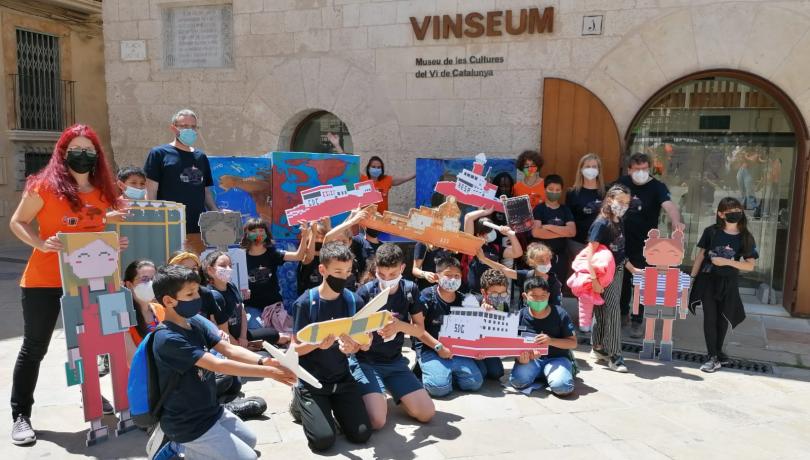This year, unlike previous years, the congress, which aims to bring oceanography to primary school students, has been held outside the ICM and on different days due to the current health situation.

More than 150 students have participated in the 5th congress of the Little Oceanographers project, an initiative of the Institut de Ciències del Mar (ICM) with the support of the Fundación Española para la Ciencia y la Tecnología of the Science and Innovation Ministery (FECYT), which aims to bring oceanography to the youngest. Since 2016, every year around 200 students in the fifth and sixth year of primary school from different schools in Catalonia have been taking part in this educational project.
This year, unlike previous years, the congress has been held outside the ICM and on different days in response to the current sanitary situation. The first session took place yesterday at the Lanaspa Giralt school in Terrassa, while the second one has been held this morning at the Vinseum museum in Vilafranca del Penedès with students from the Josep Baltà i Elias school.
During the meeting, the culmination point of a course in which these students from inland areas of Catalonia have been able to get closer than ever to the sea, the participants have shown to their classmates and the research and technical staff of the ICM their research work in a different kind of presentations.
"The congress is a very exciting event that seeks to encourage students' imagination in the way they present their work. Over the years, the children have presented models, stories or songs, among others, on subjects as diverse as underwater volcanoes, fish, salt or tides. Since if we know anything, we need emotions to enjoy learning", explains Carine Simon, ICM oceanographer and coordinator of the Little Oceanographers project.
An experiential learning experience
Little Oceanographers is a project based on experiential learning and the link created between ICM staff and schools, both with teachers and students. It aims to bring the ocean to all types of schools from a dual perspective, as it seeks, on the one hand, to bring the ocean to the classroom and, on the other, to bring the classroom to the ocean.
Therefore, the first actions take place in the classroom, where researchers raise questions covering basic concepts about the scientific method and ocean dynamics. Then, they let the students experiment in groups. Based on these experiences, the children answer their own questions and carry out scientific projects guided by their teachers.
As part of the Little Oceanographers project, students also have the opportunity to follow live the oceanographic campaigns in which the ICM participates through diaries written by the researchers on board, to whom the children can ask questions to solve their doubts. In addition, thanks to a collaboration with the Maritime Museum of Barcelona, they can take part in a mini oceanographic campaign on board the historic oceanographic vessel Santa Eulalia, in which the students embark together with the ICM researchers.
"We seek to encourage students' interest in science and their critical thinking while transmitting our knowledge about the ocean in an interactive and enthusiastic way, giving them the opportunity to work in groups and communicate like real scientists", concludes Marta Masdeu, another ICM researcher involved in the project.